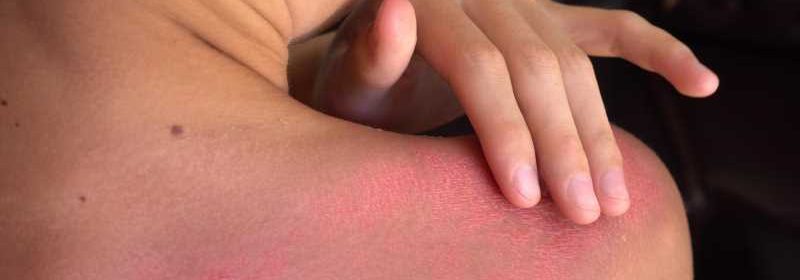You should never put Vaseline on a sunburn. Here’s why


As most of us know, sunburns aren’t just unsightly, they can be incredibly uncomfortable, too. Just a few hours in direct sunlight can lead to painful, tender skin that feels hot to the touch (via Mayo Clinic). A little more exposure can cause swelling, fluid-filled blisters, headaches, fever, nausea, and fatigue. Not only are these symptoms unpleasant, they can take days to heal, making over-the-counter remedies an absolute necessity.
Aloe vera is excellent at reducing inflammation, moisturizing the skin, and it can even help prevent the skin from peeling as it heals (via Healthline). However, aloe vera alone isn’t usually enough to soothe a sunburn any worse than “mild to moderate.” The dryness and itchiness of a bad sunburn might tempt you to apply a product that’s more likely to stick around, rather than instantly soaking in, but do yourself a favor and resist the urge to pick up Vaseline (aka petroleum jelly). It could actually make your sunburn worse. The reason for this is that Vaseline doesn’t act as a moisturizer, but more like a barrier that blocks your pores, which can lead to all sorts of issues.
Why Vaseline can make your sunburn worse

This might sound confusing, considering the company itself recommends applying the product to minor burns (via Vaseline). But it’s really not a good idea, especially on fresh burns. The reason for this is twofold: first, applying Vaseline to a sunburn will create an occlusive barrier between the skin and the air that will prevent the skin from being able to releasing heat and sweat, which will not only worsen your skin’s uncomfortable feelings of heat and itchiness, but can also lead to infection (via MedlinePlus). The second reason is that Vaseline is not sterile, meaning applying it to skin compromised by a burn can breed bacteria (via National Institutes of Health). The same is true of other oil-based moisturizing products, so steer clear of them until your burn is in its peeling stage to avoid added discomfort and possible complications (via Insider).
Luckily, there are plenty of safe ways to cool down and help your skin heal, like taking a cool bath or shower, applying moisturizing products that contain aloe, staying out of the sunlight, and drinking plenty of water until your symptoms have subsided.
Source: Read Full Article